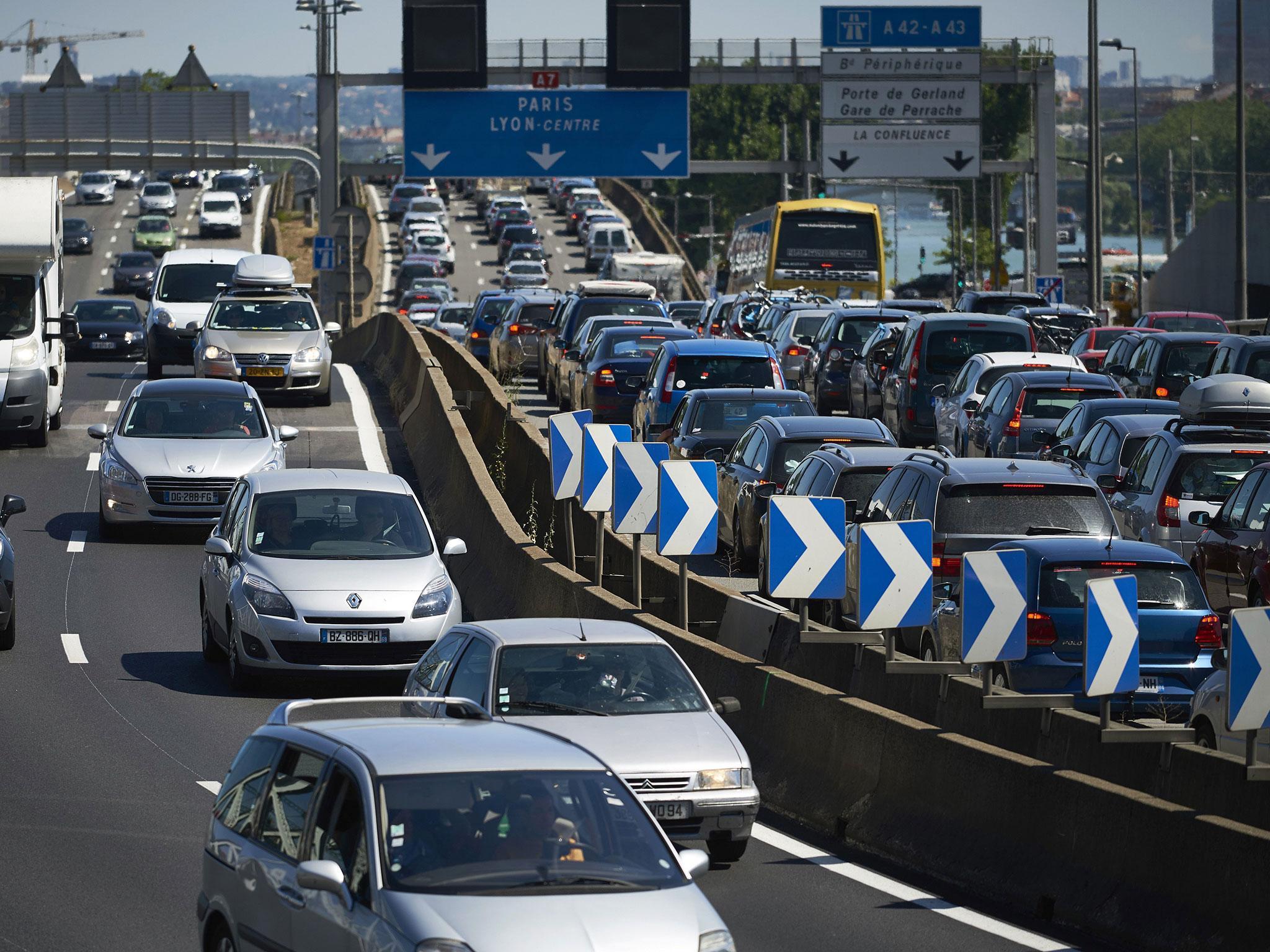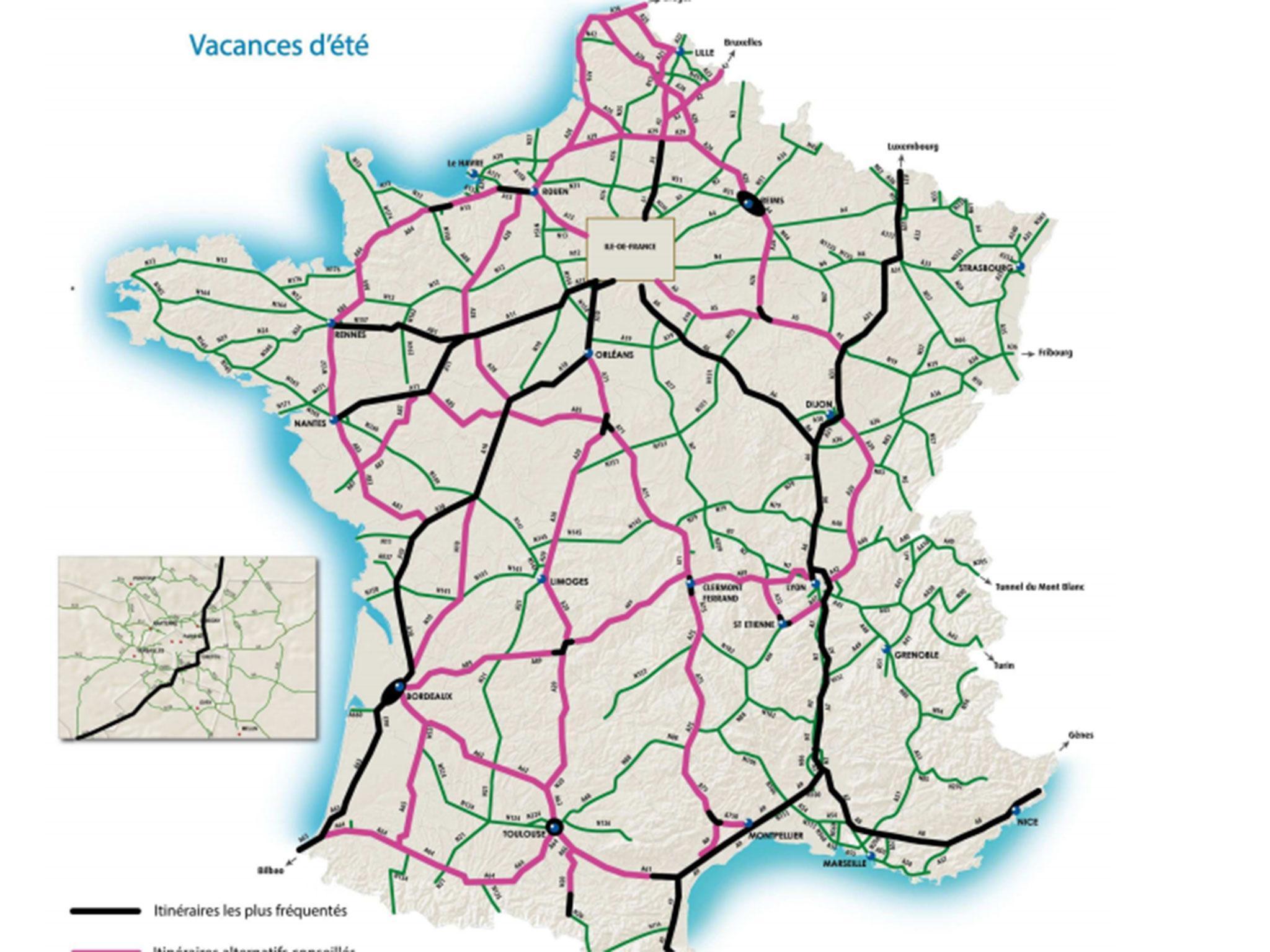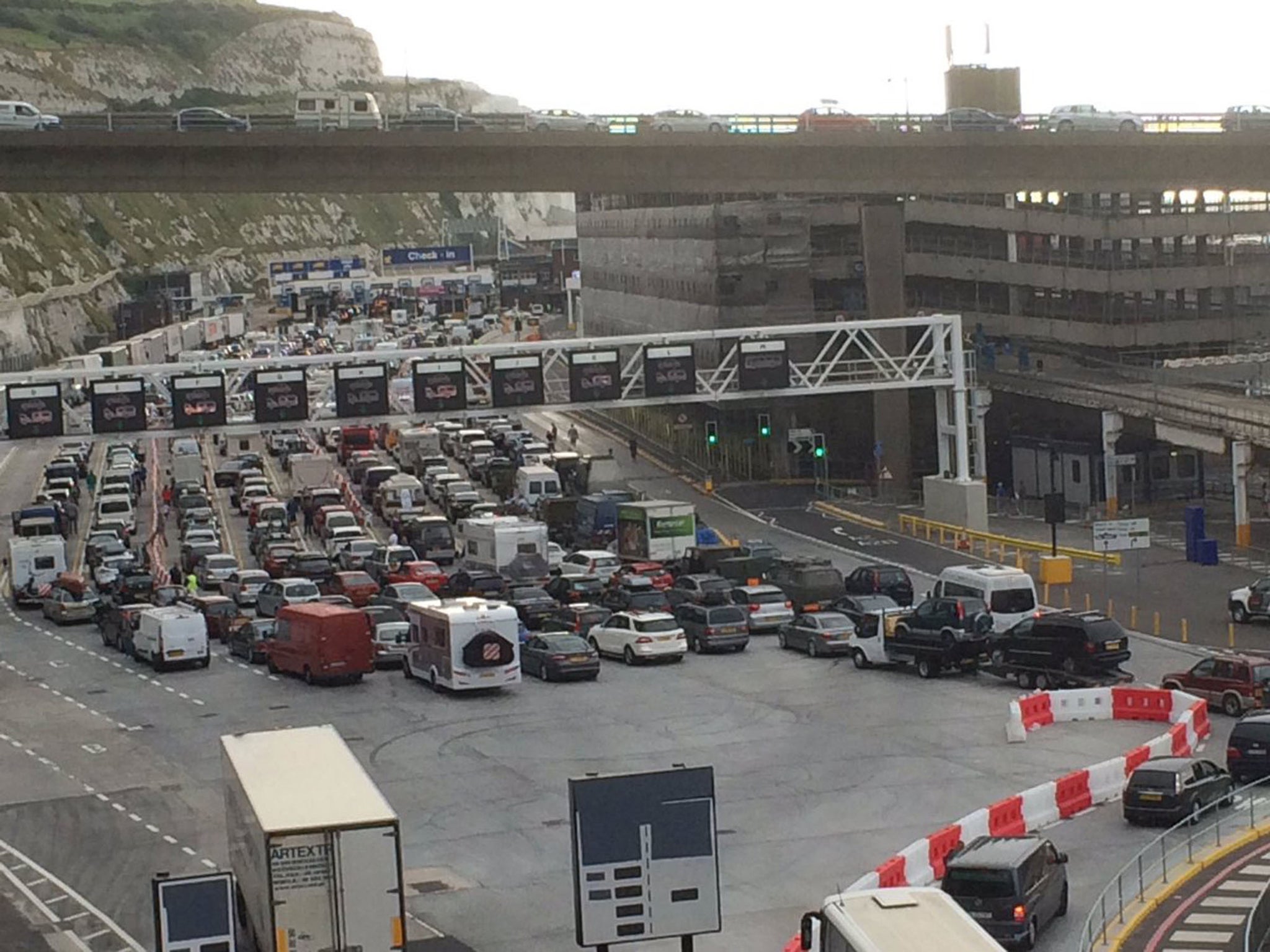Dover traffic delays: Britons heading for France to face worst congestion yet in ‘Black Saturday’ travel chaos
Exclusive: French highways authorities warn 'almost all major arteries connecting the country will be affected'

Your support helps us to tell the story
From reproductive rights to climate change to Big Tech, The Independent is on the ground when the story is developing. Whether it's investigating the financials of Elon Musk's pro-Trump PAC or producing our latest documentary, 'The A Word', which shines a light on the American women fighting for reproductive rights, we know how important it is to parse out the facts from the messaging.
At such a critical moment in US history, we need reporters on the ground. Your donation allows us to keep sending journalists to speak to both sides of the story.
The Independent is trusted by Americans across the entire political spectrum. And unlike many other quality news outlets, we choose not to lock Americans out of our reporting and analysis with paywalls. We believe quality journalism should be available to everyone, paid for by those who can afford it.
Your support makes all the difference.As the bosses of the biggest cross-Channel ferry firm and the port of Calais called the queues sparked by extra security checks “unacceptable,” The Independent can reveal that motorists who are able to reach France this weekend will encounter the worst congestion of the year so far.
Saturday 30 July is the first day of the year to be assigned “black” by the French highways authorities. The National Road Information Centre (CNIR) warns that “almost all major arteries connecting [France] will be affected by congestion.”

The coming weekend is the “crossover” for French families – some of them at the end of their July holidays, others at the start of their August vacances.
Heading south, they warn of “extremely dense” traffic and “extremely difficult” conditions for drivers. The worst-affected stretch of road is expected to be the Autoroute du Soleil south from Lyon - a trip that is very popular with British motorists heading for the south of France.
Drivers are urged to “favour Sunday” when planning their journeys.
Meanwhile the ferry operators and the ports of Calais and Dover are urging Paris to deploy more “boots on the ground” to its operation of 100 per cent screening of France-bound vehicles.
Last weekend some motorists setting off on summer holidays had to queue for 12 hours before boarding their ferries.
Helen Deeble, Chief Executive of P&O Ferries, said: “The scenes which we saw at the weekend at the port of Dover, with holidaymakers delayed for completely unacceptable lengths of time, must never be allowed to happen again.”
French officials have long had a presence at Dover, but in normal times they content themselves with a cursory glance at passports - or simply wave travellers through. Now, though, they are insisting on 100 per cent passport checks but without the resources to conduct extra scrutiny.
Stricter security measures to control the movement of suspected terrorists have been introduced after the attacks in Paris, Brussels and Nice.

The tough new rules coincided with a surge of cross-Channel traffic at the start of the main summer holidays. As the weekend rush abated, queues have reduced.
DFDS, which sails from Dover to Calais and Dunkirk, reports traffic is currently “running clear,” with minimal queues at French border controls. It is urging passengers to allow 90 minutes to complete formalities, to have all passports to hand and open at the photo page before arriving at booths.
Ms Deeble said the stricter security checks at the border were “completely understandable,” but added: “The French authorities must provide adequate numbers of staff to ensure that these checks can be processed quickly and efficiently.
“The failure to do so at the weekend was the primary cause of the delays,” she said.
“We will be talking to the British and French authorities this week to ensure that there is no repetition of this disruption.”
The port of Calais is run by Côte d'Opale Chamber of Commerce. Its President, Jean-Marc Puissesseau, told the Today programme on BBC Radio 4 that he was “very ashamed of this situation”.
“If the French police is obliged now to control because of all the terrorism we are facing, I can understand it but what I cannot understand is that they don't put enough policeman to control.”
Join our commenting forum
Join thought-provoking conversations, follow other Independent readers and see their replies
Comments